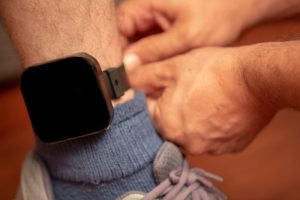Yes. A student can be arrested and charged with assault and battery depending on the circumstances of the offense. If convicted, your child’s actions could affect their future and hinder certain opportunities upon their release from jail. Even a minor can serve a significant sentence, causing irreparable damage to their future and reputation.
 Fortunately, criminal courts want to avoid imprisonment for juvenile crimes when possible. Typically, judges will determine whether rehabilitation or probation is a better option. Rather than spend time behind bars, your son or daughter could get the help they need and improve their chance of becoming a law-abiding adult.
Fortunately, criminal courts want to avoid imprisonment for juvenile crimes when possible. Typically, judges will determine whether rehabilitation or probation is a better option. Rather than spend time behind bars, your son or daughter could get the help they need and improve their chance of becoming a law-abiding adult.
If your child was arrested or charged with assault after a school fight, you should immediately consult a criminal defense lawyer. An experienced lawyer could represent your child and defend them against the charge they face.
Intake Process for Juvenile Offenders
In Texas, a person between ten and 17 years old is considered a juvenile offender. After an arrest for getting into a fight at school, the juvenile probation officer will perform the intake and determine whether:
- Your child is a juvenile based on their age and state law;
- Whether probable cause exists to indicate your son or daughter committed the offense; and
- Whether they should be released or remain in jail until the hearing.
Intake officers often meet with the parents to collect information that could influence their decision about detaining or releasing the juvenile. Common information includes:
- History of substance abuse
- Family history
- Prior hospitalizations
- Mental health
- History at school
- Past and current medications
- Criminal records in the family
The probation department typically releases a first offender until their trial date. There’s a good chance your child can come home with you after the arrest unless they meet these criteria. They:
- Are a flight risk
- Have no parent or guardian to provide adequate supervision and care
- Have a prior conviction on their record
- Are a danger to themselves or other people
First Offender Program in Texas
The court could issue a sentence other than imprisonment. If the judge believes your child can benefit from completing a first offender program, they might decide it’s a more productive punishment.
The first offender program promotes rehabilitation by offering alternative sentencing to minors arrested for assault. The benefits of this program include:
- Encouraging reform and learning valuable lessons and skills
- Receiving counseling, treatment, and support
- Reducing the mental and physical consequences of spending time in jail
- Serving as a substitute penalty for imprisonment
- Improving the chance of rehabilitation
- Preventing the commission of future crimes
Under the first offender program, your child could be given one of the sentences below.
House Arrest
 Instead of serving a sentence in a juvenile detention center, your child could serve their sentence at home. They’re not allowed to leave the house or go beyond a predetermined range from home while on house arrest. They must also wear a monitoring device so the court can keep track of their whereabouts. House arrest can involve one of two types of monitoring devices:
Instead of serving a sentence in a juvenile detention center, your child could serve their sentence at home. They’re not allowed to leave the house or go beyond a predetermined range from home while on house arrest. They must also wear a monitoring device so the court can keep track of their whereabouts. House arrest can involve one of two types of monitoring devices:
- GPS monitoring – An officer can track and monitor the juvenile’s location with a GPS device.
- Radiofrequency electronic monitoring – The device will submit a signal to law enforcement if the offender steps outside a specific range from their home.
Community Service
The court could impose community service on your daughter or son. Instead of serving their sentence in jail, they could complete activities to make the community a better place. Common types of community service include:
- Speaking at a school or event about the consequences of a school fight
- Creating and organizing treatment meetings
- Working for a public agency or nonprofit organization
- Performing necessary work in the community for free
- Counseling or sponsoring another juvenile struggling with substance abuse
Probation
If your child gets placed on probation, a probation officer will supervise them throughout their sentence. The court will set conditions your son or daughter must meet to complete probation successfully. Common conditions include:
- Checking in with their probation officer regularly
- Entering a treatment program for mental illness, drug abuse, or another issue
- Following a strict curfew
- Completing community service hours
- Submitting to random drug and alcohol testing
- Paying fines and restitution
- Maintaining good behavior at home and in school
Contact Us
At the Law Offices of Mark T. Lassiter, our criminal defense lawyers have defended Texas clients since 2006. We believe juvenile offenders deserve a chance to avoid imprisonment and serve their sentences while learning to become productive members of society. We will fight to protect your child’s rights when you hire us.
If your son or daughter was in a school fight and was arrested for assault or another criminal offense, call the Law Offices of Mark T. Lassiter at (214) 845-7007 immediately for your free consultation. Let us be your child’s advocate and secure their freedom and future.








